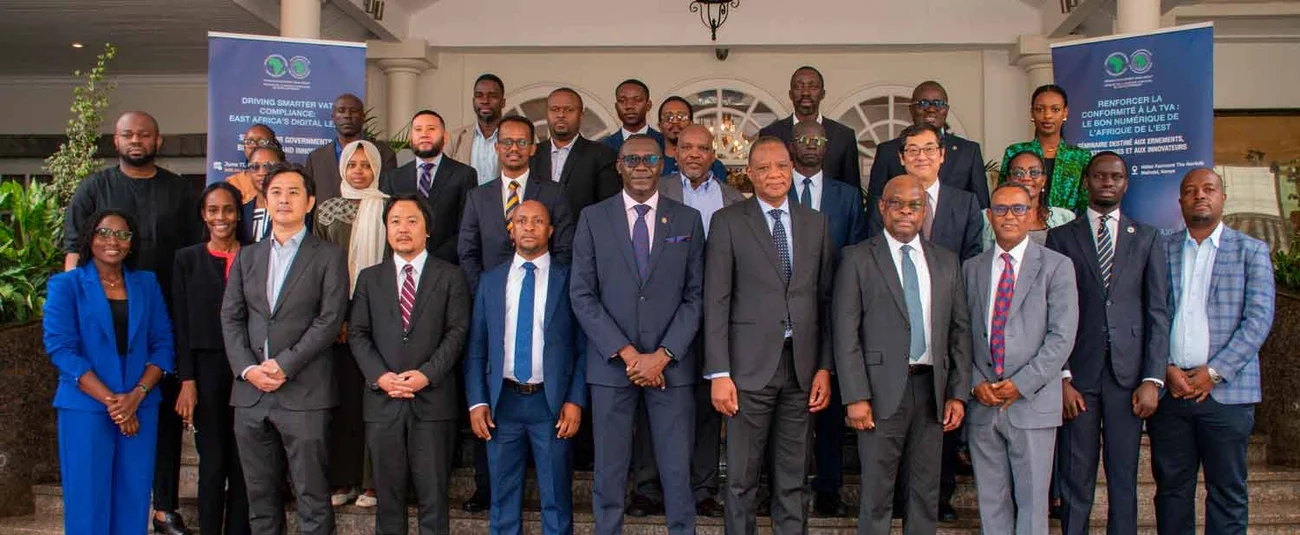Tax experts are calling for the rapid scaling-up of digital tax systems across Africa to strengthen domestic resource mobilization, enhance efficiency, and improve transparency in public finance.
The call was made during a hybrid seminar, “Driving Smarter VAT Compliance: East Africa’s Digital Leap”, held in Nairobi and online on June 17, 2025. The event brought together tax administrators from East African Community (EAC) member states, as well as representatives from the Kenya National Chamber of Commerce and Industry, the African Tax Administration Forum, the private sector and media.
Hosted by the African Development Bank Group and the Government of Kenya, the seminar emphasized the transformative potential of digital solutions for tax administration, particularly Value Added Tax (VAT) systems. Participants noted that while many African countries have implemented electronic filing and payment systems, which have led to increased tax revenues, others continue to struggle with compliance gaps, administrative inefficiencies and limited digital infrastructure.
“By embracing technology, countries are not only improving compliance and broadening the tax base, but also fostering greater transparency, trust, and accountability between states and their citizens,” said Dr. Kennedy Mbekeani, the Officer-in-Charge for the Bank’s East Africa Regional Integration and Business Delivery Office, in his welcoming remarks.
He hailed the event as a vital platform for peer learning and deepening the understanding of necessary reforms.
George Obell, Commissioner for the Micro and Small Taxpayers Department at the Kenya Revenue Authority noted Kenya’s progress in digital tax administration. He outlined successful initiatives such as e-filing, e-invoicing, and data-driven compliance systems, noting that revenue collection grew by 11.1% in 2024, up from 6.4% the previous year. These reforms, he said, have not only boosted collections but also streamlined the taxpayers’ experience.
Other EAC countries have also made significant strides. Uganda Revenue Authority’s Electronic Fiscal Receipting and Invoicing System has helped increase VAT revenue by 50% since its introduction in 2021, according to unit supervisor Festo Kasirye. Tanzania and Rwanda have implemented similar VAT reforms, resulting in greater tax compliance and revenue growth.
A key theme that emerged during the session was the need to integrate the informal sector into VAT systems. In many African countries, the informal sector accounts for 60–80% of employment and up to 40% of GDP. “Simplifying tax processes and developing tailored solutions are essential to bringing this vast sector into the tax net,” said Obell. “This will help broaden the tax base without raising tax rates.”
Despite the progress, challenges persist. According to Emeka Nwankwo of the African Tax Administration Forum, many countries lack the financial resources to develop or maintain digital VAT platforms, train compliance personnel, or invest in necessary infrastructure. Public-private partnerships represent a viable pathway to overcoming these constraints and speeding up digital transformation, he said.
Abdoulaye Coulibaly, the Bank Group’s Director for Governance stressed the importance of implementing relevant technology.
“There is no one-size-fits-all solution. Each country must adopt systems aligned with its regulatory environment, fiscal capacity, and technological readiness,” he noted.
Coulibaly reaffirmed the African Development Bank’s commitment to supporting digital VAT initiatives through investments, advisory support, and regional partnerships designed to foster innovation and inclusive economic growth.



